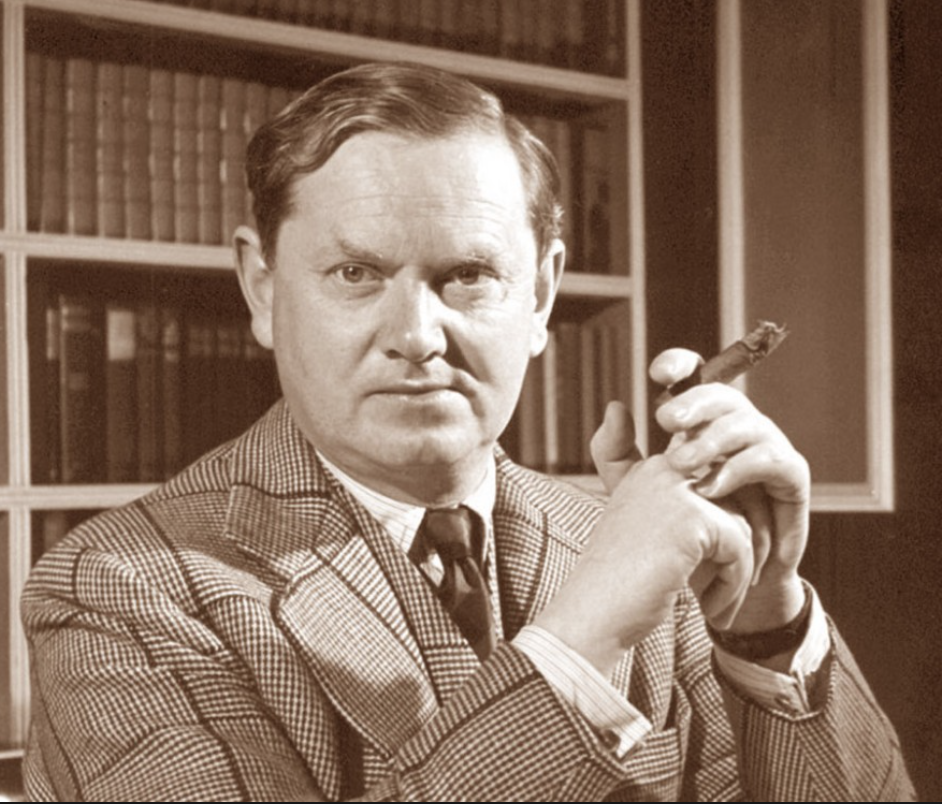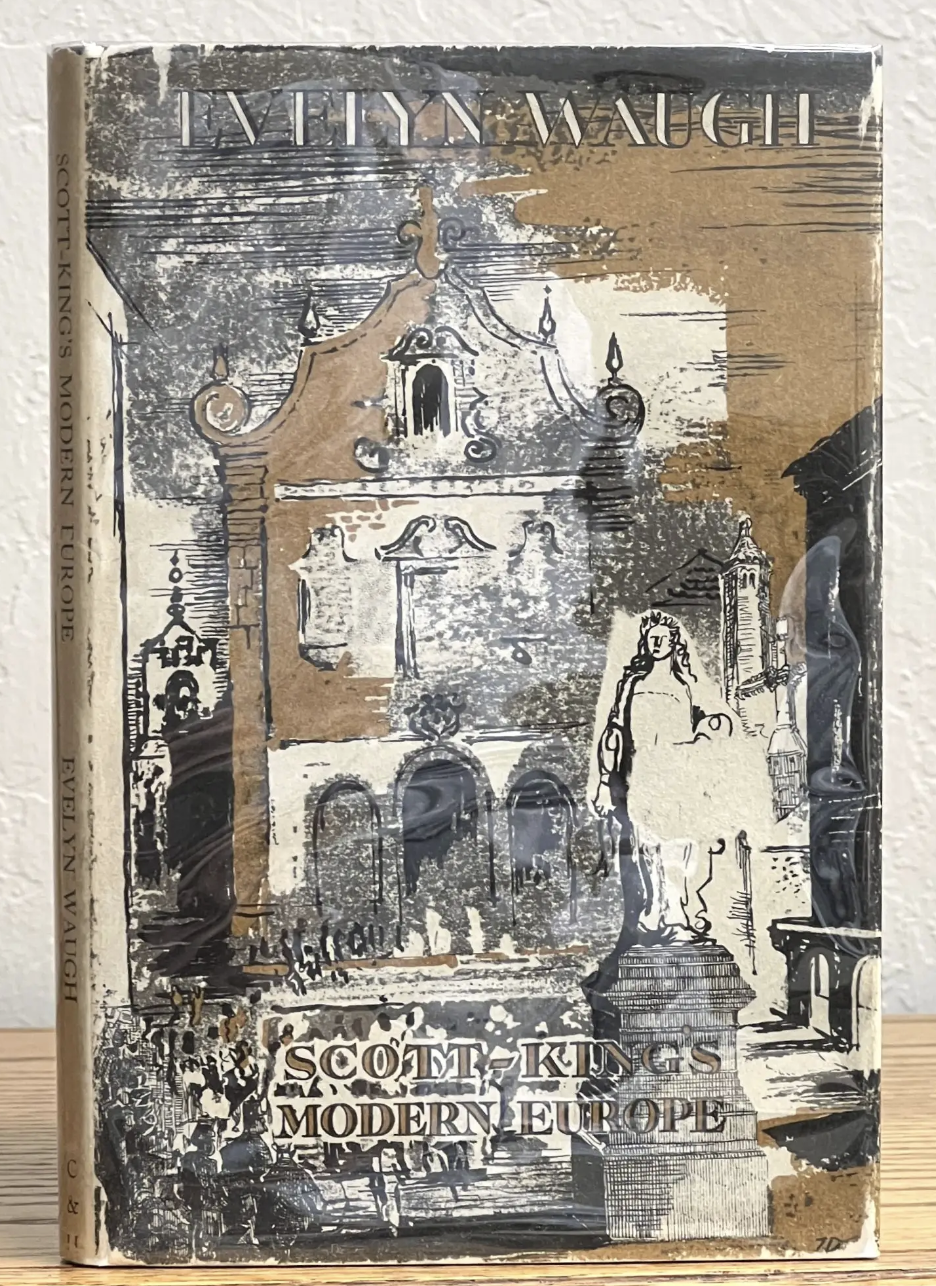*
When you think of the name Evelyn Waugh, titles like Brideshead Revisited and A Handful of Dust probably come to mind. Waugh, an author known for his biting satire and meticulously written prose, was a prolific author of the 20th century. His novella “Scott-King’s Modern Europe” is a classic example of Waugh’s satirical work – complete with profound insights into (unfortunate) cultural decline, the crumbling of “traditional” values, and the occasional absurdity of modern life. Despite its brevity (the work is only 88 pages), this novella is an almost perfect example of Waugh’s trademark wit and language while offering sharp social commentary.

*
Set in post-World War II Europe, “Scott-King’s Modern Europe” follows (lo-and-behold) the character of Mr. Scott-King, a classics professor at an English public school, as he sets off on a cultural exchange program to the fictional European state of the “Modern European Republic”. At the beginning of the story, Scott-King shows reluctance to participate fully in the trip, feeling a dedication to preserving the traditions and manners of classical education in a progressively more and more modern, utilitarian world. However, as time passes and as Mr. Scott-King sees absurd bureaucratic nonsense and the inanity of this “Modern European Republic”, he finds himself staring straight into the harsh (yet at times comical) realities of the cultural and moral decline of his world.
Central in the novella is Waugh’s rather scathing critique of modernity and its impact on education, culture, and society in general. Comparing the polar opposites of the world of classical academia and the fairly soulless modern functional bureaucracy, Waugh found a way to reveal the occasionally empty promises of progress and pragmatism. The protagonist’s extreme commitment to the concepts of a classical education and tradition seem to be a rather uncomfortable reminder to value knowledge, tradition and manners in an age obsessed with the superficial, with expediency and convenience. Sound familiar to anyone else? Seems like a reminder we could all use today. And this was written in 1947… clearly it’s an enduring problem!
Throughout the book, Waugh’s writing is full of subtle irony and dark humor – classic hallmarks of his satires. The novella might be short, but don’t let that fool you. Waugh deftly handles themes of identity and disillusionment, not to mention the human battle between our idealistic and realistic feelings and desires. Mr. Scott-King himself is something of a tragicomic character, with a hint of the absurd yet heroic in his own way. He sticks to his principles, even to the detriment of his relationships with those around him. While coming across as a bit of a “stick-in-the-mud”, he also isn’t necessarily wrong in his breakdown of a modern, unfeeling society.
Despite being published almost eight decades ago, Waugh’s work remains almost remarkably relevant in his critique of contemporary society. Here in the 21st century, we struggle with similar issues! Perhaps we can all take a lesson from Waugh’s commentary and incorporate more traditions and values into our modern society.
Check out our 1st edition copy here!


